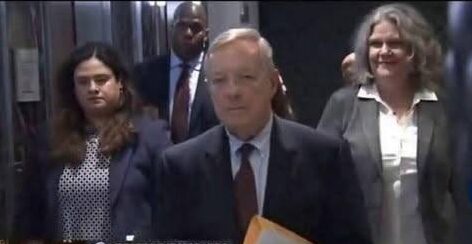Trump Administration Dismisses Dozens of Immigration Judges, Sparking Debate
Washington, D.C. — The Trump administration has dismissed roughly fifty federal immigration judges, igniting fierce debate over judicial independence, executive authority, and fairness in the U.S. immigration system.
The dismissals came abruptly in short emails with no explanation. Judges received no hearings or formal reasoning. Immigration courts, already overwhelmed by backlogs and criticized for inconsistency, are now at the center of a fight over impartiality and political influence.
By mid-2025, immigration courts faced a record backlog of more than three million cases. While past administrations sought reforms, Trump pledged to “end the judicial swamp.” Critics say the firings target judges seen as lenient, while supporters argue they will enforce greater accountability.
Among those removed was Judge Jennifer Peyton, appointed under Obama, who expressed shock at her dismissal despite strong reviews. Judge Carla Espinoza claimed discrimination after releasing a Mexican national flagged by Homeland Security, a decision she defended as fair.
The immigration judges’ union condemned the firings, warning they create a chilling effect. “The rest feel threatened,” said union president Matt Biggs. Immigrant-rights groups echoed concern, preparing lawsuits that claim due process violations and political interference.
The administration defended its decision. A senior official accused judges of “acting like policymakers,” while Trump declared, “We are cleaning up the judicial swamp. Activist judges don’t get to run the system anymore.”
Legal experts caution that mass removals risk undermining trust in courts. Though immigration judges are part of the Justice Department, not the independent judiciary, their rulings carry immense weight for asylum seekers and immigrants.
The Justice Department is already preparing replacements, many with prosecutorial backgrounds. Supporters expect efficiency, while critics fear bias against migrants. Whether this reshaping restores order or erodes justice will be tested in courtrooms, Congress, and the lives of millions still waiting for their hearings.


